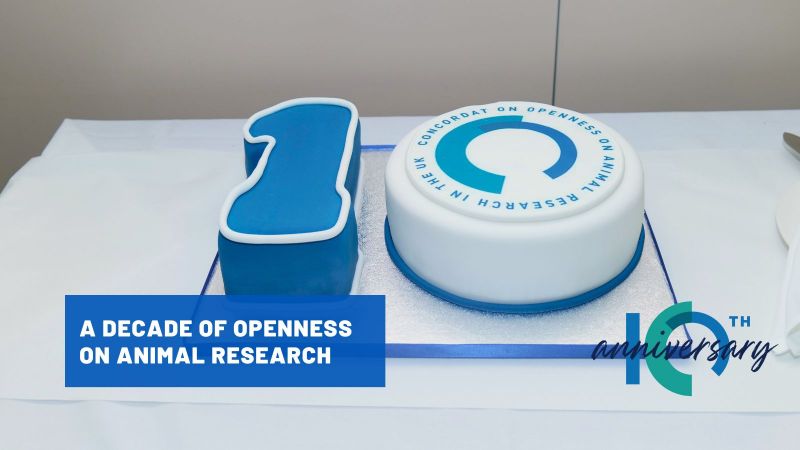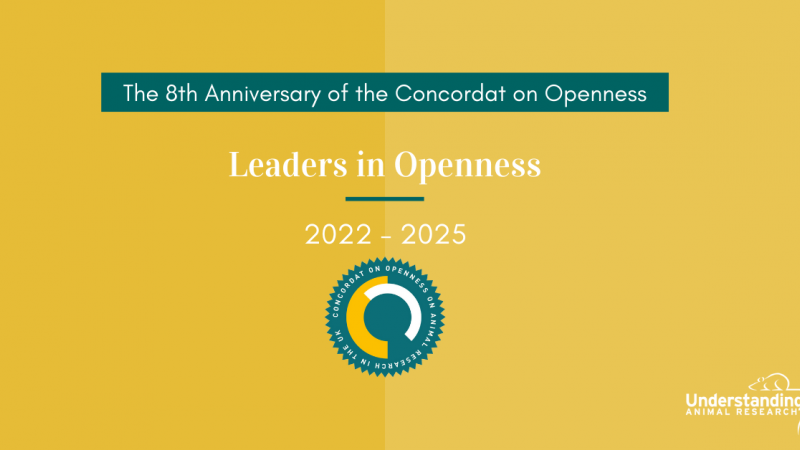The latest blog post from UAR staff is written by our Head of Engagement, Bella Williams, on the day that the Concordat on Openness is launched.
Today, in a historic development, 74 organisations from across the life-science sector, came together to sign the Concordat on Openness on Animal Research in the UK. The final version of the Concordat has been agreed by universities, charities, commercial companies, research councils, umbrella bodies and learned societies, who have set out four commitments to greater openness on the use of animals in research:
1. We will be clear about when, how and why we use animals in research
2. We will enhance our communications with the media and the public about our research using animals
3. We will be proactive in providing opportunities for the public to find out about research using animals
4. We will report on progress annually and share our experiences
The Concordat is underpinned by agreement that communication about animal research should provide accurate descriptions of the benefits, harms and limitations of research and be realistic about the potential outputs of such research. It will mean being open about the impact of research on the animals and the ethical considerations that surround research projects. The document strongly encourages signatories to consider allowing accredited journalists and media organisations, MPs, and local schools, patient and community groups to visit research facilities and see how the animals are kept for themselves.
The aim is to increase the openness and proactivity with which organisations communicate on the use of animals in research and to recognise good practice that exists within the sector. Some organisations are already meeting the Concordat commitments, and hope that the Concordat’s launch will provide encouragement to others in the life-science sector to follow their lead. By meeting the commitments outlined in the Concordat signatories will develop a strategic approach to communications on animal research.
Many years of brave steps by the sector have taken us from the days of direct action and violent activism by animal rights extremists to the current commitments around openness. Over the past ten years, we have seen time and again that proactive communications on the use of animals in research have built public confidence, taken ground away from the extremists, and allowed people to understand that research on animals is both important and undertaken responsibly. Those institutions that have taken an open stance have not been aggressively targeted, on the contrary, shining a light on this area shows that institutions are carrying out credible, well-regulated research that they can be proud of.
But there is still a great deal of work to be done. The research undertaken with members of the public that was instrumental in drafting the Concordat – the Public Dialogue – showed that most people broadly accepted the use of animals in research because of the benefits it brought. This was despite having little idea how animal research was regulated and believing that most research was undertaken to test cosmetics. The Dialogue showed a clear need for more effective communication around the use of animals in research; to address the myths and build understanding.
By standing together the research sector can ensure that there is no longer a need to rely on a few brave individuals to speak out about the importance of animals in their research. Now the organisations which support, fund and research life sciences will publicly recognise the necessity of animal research and will work with their scientists to bring this issue into the open.
Bella Williams
Head of Engagement, Understanding Animal Research
Last edited: 20 September 2023 10:25



